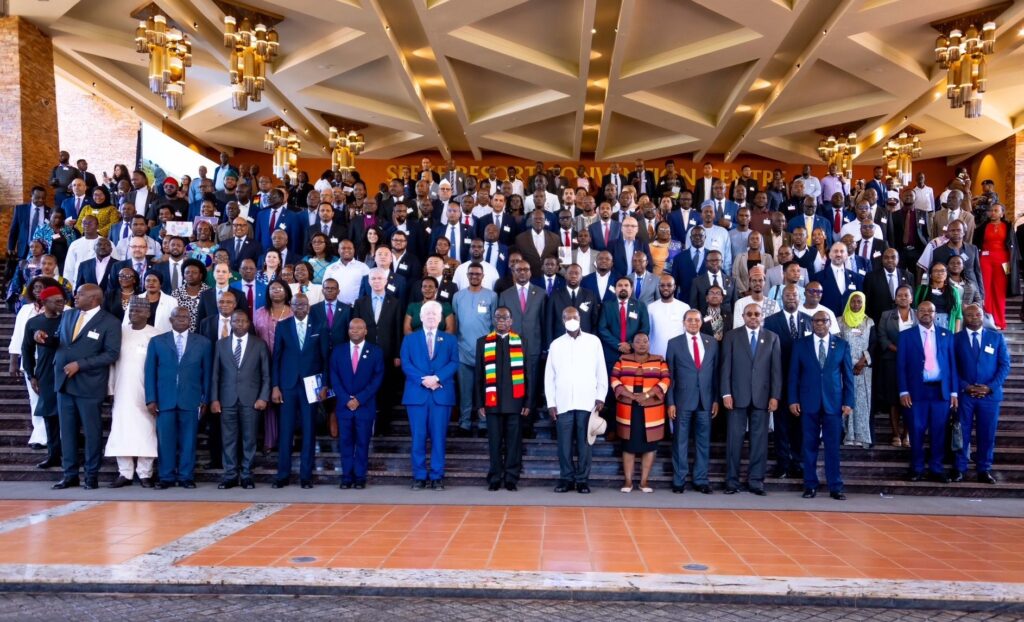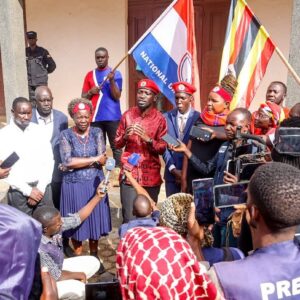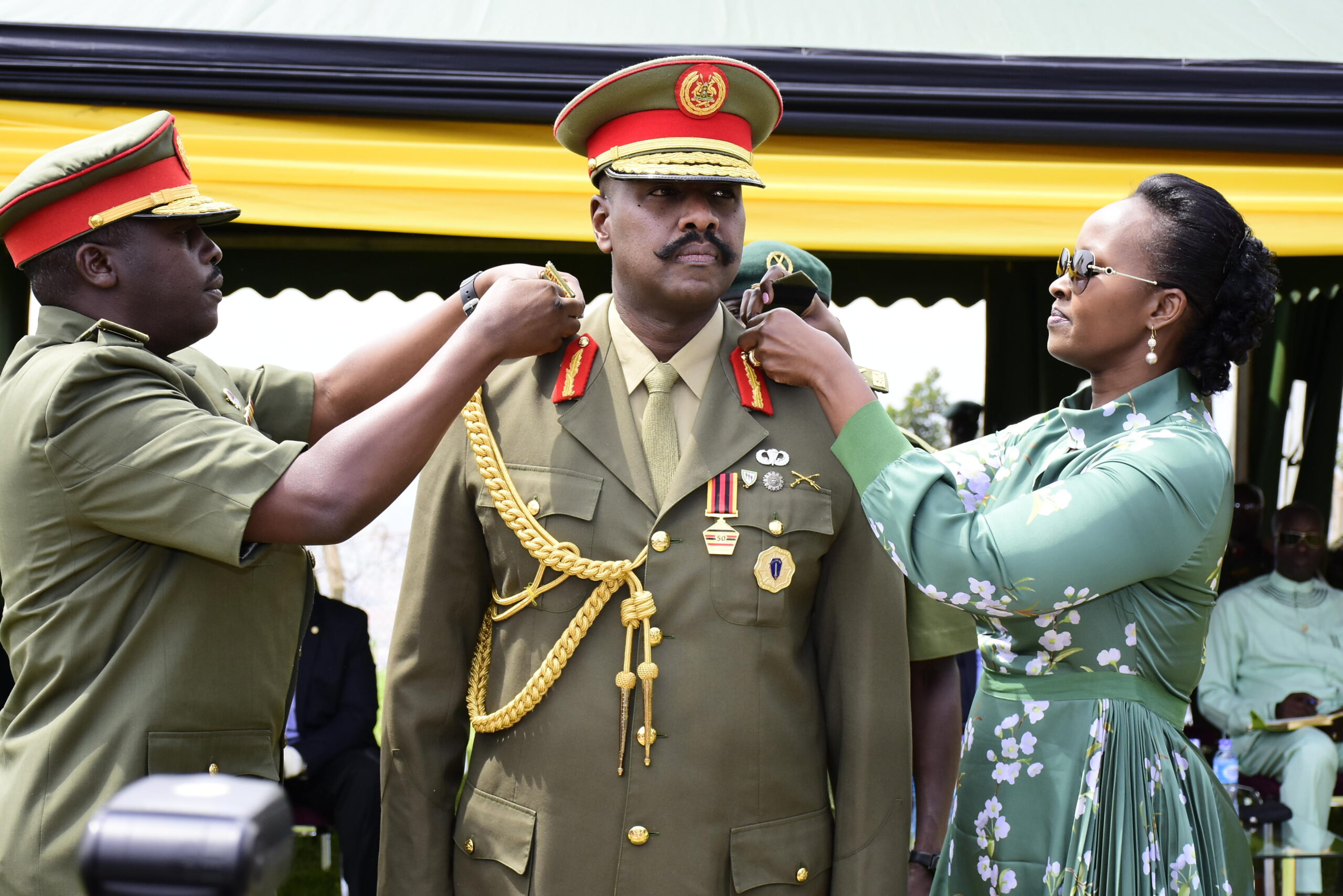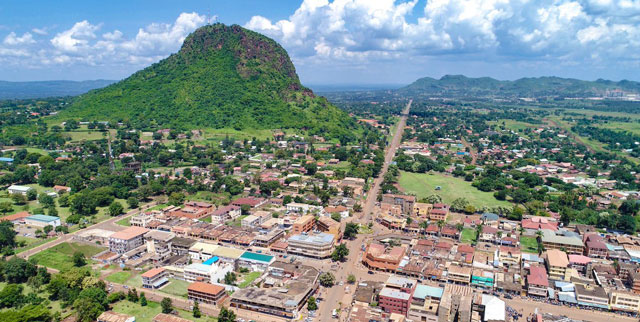President Yoweri Kaguta Museveni delivered a keynote address at the 11th Session of the Africa Regional Forum on Sustainable Development (ARFSD), held at the Speke Resort Convention Centre in Munyonyo, Kampala. The forum, which runs from April 9 to 11, 2025, is themed “Stimuler la création d’emplois et la croissance économique grâce à des solutions durables, inclusives et fondées sur les données pour 2030 et 2063.” It brings together African leaders, policymakers, and stakeholders to assess progress on the United Nations’ Sustainable Development Goals (SDGs) and the African Union’s Agenda 2063.
The event is jointly organized by the United Nations Economic Commission for Africa (UNECA), the Government of Uganda, the African Union Commission, the African Development Bank, and various UN system organizations. It serves as a preparatory meeting for the High-Level Political Forum (HLPF) in New York in July 2025 and the Second World Summit for Social Development in Qatar from November 4 to 6, 2025. The hybrid format of the forum allows both in-person and virtual participation, with attendees including ministers, high-level policymakers, experts, and representatives from civil society, the private sector, and academia across ECA member states.
President Museveni, who arrived at the venue accompanied by First Lady Janet Museveni and a delegation of Ugandan officials, was warmly received as he walked through the grand wooden doors of the conference hall. Dressed in his signature white tunic and holding a traditional hat, Museveni outlined Uganda’s economic transformation, tracing its journey from a colonial “enclave economy” to a knowledge-based system. He described the colonial economy as centered on the “3Ts and 3Cs”—Tobacco, Tea, Tourism, Coffee, Cotton, and Copper—which collapsed during Idi Amin’s regime in the 1970s due to mismanagement and the expulsion of Asian business communities. He then highlighted the phases of recovery: minimum recovery in the 1980s and 1990s, diversification and value addition in the 2000s, and the current focus on innovation through vaccine production and automobile manufacturing.
A central theme of Museveni’s address was Uganda’s agricultural potential as a solution to unemployment, one of the 10 strategic bottlenecks he identified as hindering progress. He noted that Uganda has 40 million acres of arable land, of which only 35% is currently cultivated, according to the UN’s Food and Agriculture Organization (FAO). He proposed that utilizing just 7 million acres, with each acre creating 7 jobs, could generate over 100 million jobs. Museveni emphasized that job creation extends beyond agriculture, pointing to opportunities in industries, services, and ICT as critical drivers of economic growth.

He also highlighted Uganda’s agricultural surplus to underscore its potential. The country produces 5 million tonnes of maize annually but consumes only 1 million tonnes, and it produces 2.6 billion liters of milk but consumes just 800 million liters, according to the Uganda Bureau of Statistics (UBOS). Museveni stressed the need for value addition and access to export markets to capitalize on this surplus, addressing challenges like poor post-harvest handling and limited international market access.
Museveni’s vision for a knowledge-based economy was another focal point. He cited Uganda’s advancements in vaccine production, including collaborations with international partners to combat diseases like Ebola and COVID-19. He also mentioned the Kiira Motors Corporation, a Ugandan initiative producing electric vehicles, as a symbol of the country’s shift toward innovation-driven growth. He urged African nations to address their own challenges, emphasizing self-reliant solutions over external aid.
The forum featured a panel discussion with Museveni and other leaders, set against a vibrant blue backdrop displaying the ARFSD logo. Attendees, including diplomats and development experts, were actively engaged, with many seen clapping during the session. The event’s focus on sustainable jobs and economic growth aligned with Museveni’s message, as the SDGs aim to achieve inclusive economic growth and decent work for all by 2030.
The 11th ARFSD comes at a pivotal moment for Africa, as the continent faces challenges like climate change, inequality, and youth unemployment. Museveni’s address emphasized the interconnectedness of these issues, aligning with the UN’s call for inclusive growth. As the forum continues, it aims to foster peer learning and encourage the exchange of innovative development strategies across Africa, with Uganda’s hosting of the event marking a significant milestone for the continent’s sustainable development agenda.






